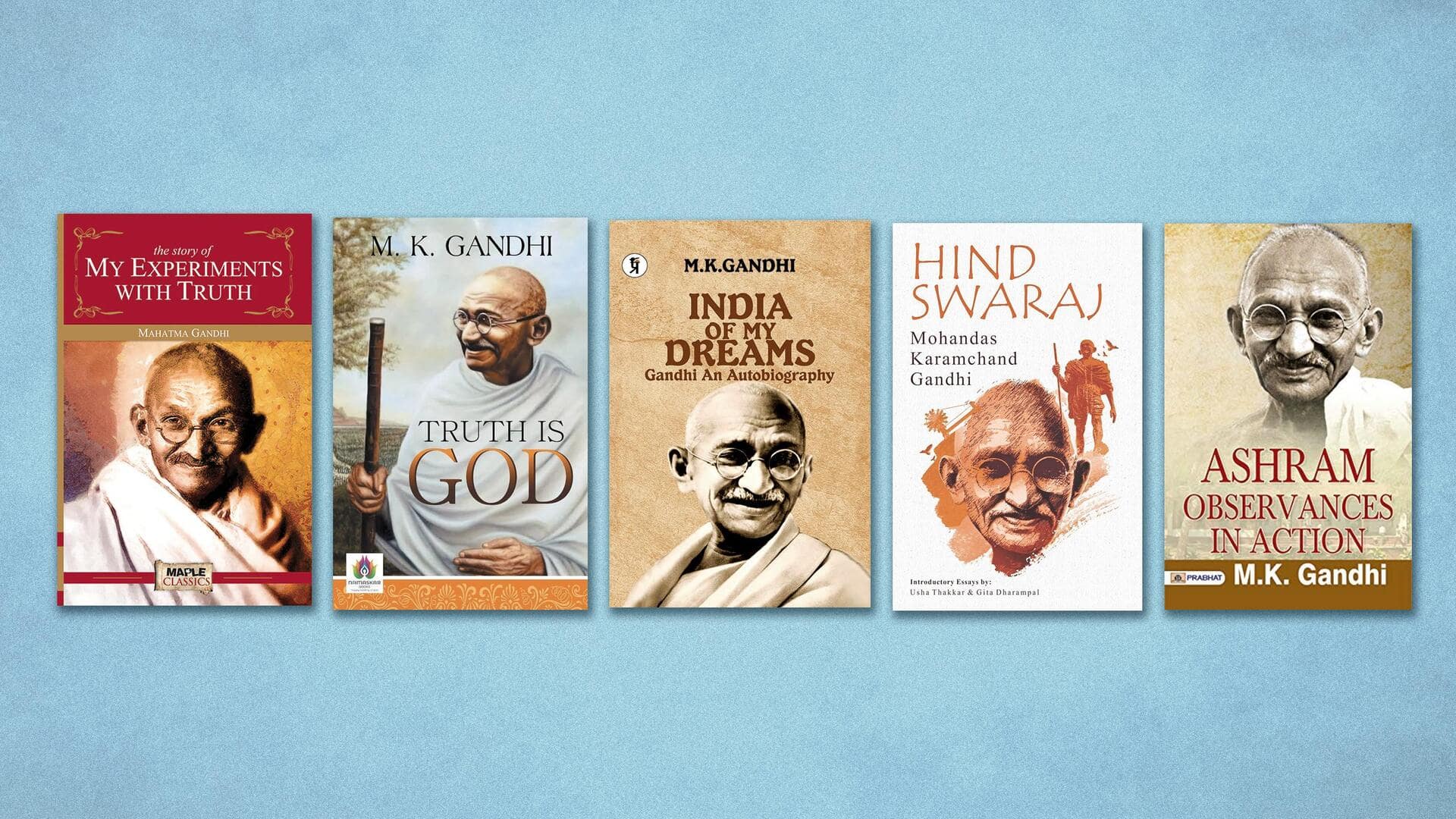
Gandhi Jayanti: Remembering 'Bapu' with these books
What's the story
October 2 is observed as Gandhi Jayanti to mark the birth anniversary of Mahatma Gandhi, the father of our nation. It is a national holiday in all states and union territories in India, paying homage to Bapu and his undying efforts to get India its overdue freedom. On his 154th birth anniversary, let us acknowledge some of his best books.
#1
'The Story of My Experiments with Truth'
This is undoubtedly one of Gandhi's finest books, as it serves as his autobiography. The book chronicles significant events in his life, spanning from his childhood to his journey into spirituality, and offers a comprehensive account of his experiments with truth. The book is divided into five parts, each narrating his personal experiences and actions.
#2
'Truth is God'
Here is another autobiography by the anti-colonial nationalist that is going to offer a deeper insight into his life. It is a novel that reflects Gandhi's philosophical and spiritual teachings through various essays and speeches from his lifetime. It explores his self-discovery and his loyalty to truthfulness, non-violence, simplicity, peace, and harmony. It is no less than a guide for those seeking discipline.
#3
'India of My Dreams'
This book is a collection of some incredible speeches and essays by Mahatma Gandhi that take readers through a wide ambit of topics. From Satyagrah to Swaraj, it explores his best-kept principles of life that hold importance even today and for generations to come. Go for this one if you would like to know his views on India.
#4
'Hind Swaraj'
One of the most famous books by Gandhi, Hind Swaraj was shockingly banned when it first came out. The reason? The British Government took it as a "seditious text" and didn't like Gandhi's personal views. With this classic book, Bapu wanted to inspire Indians to give up on English customs and beliefs, and stay loyal to the Indian roots.
#5
'Ashram Observances in Action'
Gandhi wrote this book between 1916 to 1932 in Gujarati. It offers readers his observations about the Ashram in Sabarmati and even addresses poverty, truth, and love. The observations and philosophies made in this novel are still relevant for today's youth to read, for instance, the power of fasting and the importance of prayers. Check out more such book recommendations.